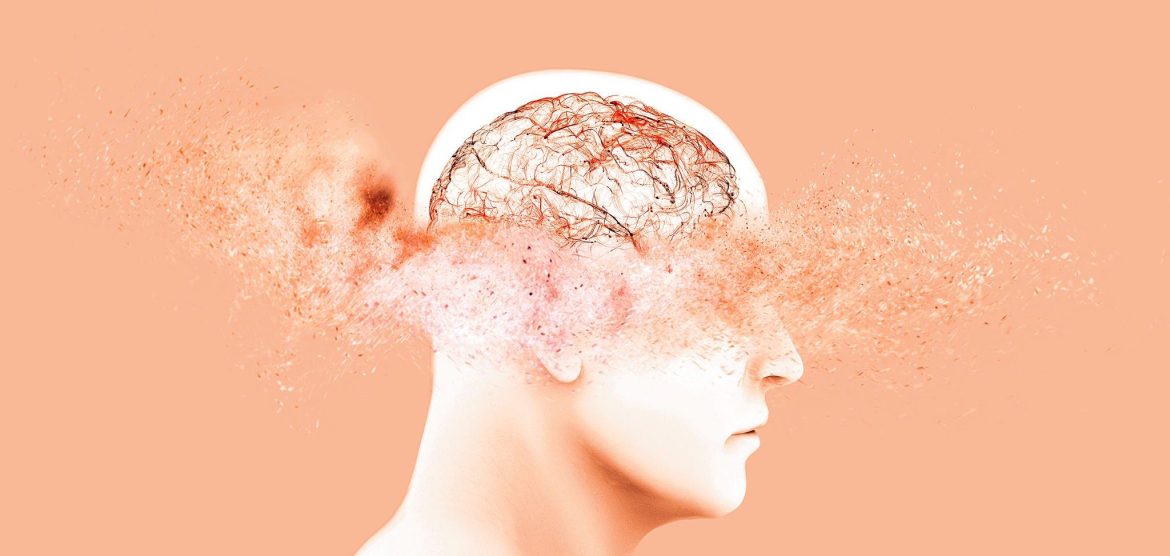Schizophrenia is a severe mental condition where individuals perceive reality in a distorted way. This disorder can lead to hallucinations, delusions, and profoundly chaotic thought processes and actions that hinder daily activities and can be incapacitating.
Individuals with schizophrenia need treatment throughout their lives. Initiating therapy early can potentially manage symptoms more effectively and enhance the prospects for long-term well-being.
Schizophrenia symptoms
Schizophrenia presents a spectrum of challenges related to thought (cognition), behavior, and emotions. Though the manifestations can differ, they often include delusions, hallucinations, and incoherent speech, indicating a compromised ability to function normally. The symptoms encompass:
- Delusions. Untrue convictions that aren’t rooted in actuality. For instance, believing one is under threat or being persecuted; interpreting certain remarks or gestures as personal signals; assuming one has a unique talent or prominence; believing someone is infatuated with them; or anticipating an imminent disaster. Most individuals with schizophrenia experience delusions.
- Hallucinations. Typically, this involves perceiving things or sounds that are non-existent. However, for someone with schizophrenia, these seem as vivid and real as ordinary experiences. They can happen through any sensory mode, but auditory hallucinations, like hearing voices, are most prevalent.
- Disorganized Thinking (Speech). One deduces disordered thinking through the person’s incoherent speech. This hampers effective communication, leading to answers that might be wholly or partially irrelevant. In some cases, the speech can be a jumble of nonsensical words, often termed “word salad.”
- Highly Disorganized or Atypical Motor Behavior. Manifestations can range from behaving childishly silly to being unpredictably agitated. The behavior lacks a clear purpose, making task completion challenging. It can manifest as a defiance to directions, peculiar postures, no reaction at all, or redundant, aimless movements.
- Negative Symptoms. This denotes diminished or absent capacity for typical functioning. For instance, they might disregard personal care, seem emotionless (avoids eye contact, maintains a fixed facial expression, or talks monotonously). They might also become disinterested in daily tasks, become reclusive socially, or be unable to feel joy.
The nature and intensity of symptoms can fluctuate over time, alternating between exacerbations and periods of relief. However, certain symptoms might persist.
For males, the onset of schizophrenia symptoms usually occurs in their early to mid-20s. For females, it’s typically in the late 20s. Diagnosing children with schizophrenia is rare, and it’s even rarer for individuals over 45 years of age.
Symptoms of Schizophrenia in Teenagers
Recognizing schizophrenia in teenagers can be challenging, as its initial symptoms often mimic behaviors seen during typical adolescent development. For instance:
- Becoming distant from friends and relatives.
- A decline in academic achievements.
- Sleep disturbances.
- Feeling irritable or experiencing low moods.
- A noticeable lack of drive or enthusiasm.
Furthermore, the use of recreational drugs, like marijuana, methamphetamines, or LSD, can produce effects similar to schizophrenia symptoms.
When comparing adolescents to adults with schizophrenia:
Teens might not experience delusions as frequently.
They are more prone to having visual hallucinations.
Treatment of Schizophrenia
The main objective in treating schizophrenia is to help individuals cope with their symptoms, function better in their daily lives, and achieve personal milestones such as finishing school, establishing a career, and fostering meaningful relationships.
Medication: Antipsychotics
Antipsychotic medications are primary in alleviating the intensity and frequency of psychotic symptoms. They are typically administered daily, either as pills or liquids. Some are also available as bi-monthly injections.
Clozapine might be an alternative for those who don’t respond well to typical antipsychotics. However, regular blood monitoring is essential due to a potential risky side effect affecting 1-2% of users.
Individual reactions to these medications can vary. It’s crucial to communicate any side effects to a medical professional. Initial side effects can include weight gain, dryness in the mouth, agitation, and fatigue. Some might diminish over time, but others might persist.
For optimal medication management, collaborative decision-making between the patient and health care provider is advised. For up-to-date details on antipsychotics, consult a medical expert or refer to the FDA website.
Psychosocial Interventions
These treatments are aimed at assisting individuals in addressing daily life challenges and symptom management while juggling responsibilities like school, work, and relationships. They often complement antipsychotic medication. Regular engagement in psychosocial treatments can reduce symptom recurrence and hospital readmissions.
Therapeutic approaches encompass cognitive-behavioral therapy, behavioral skill enhancement, job support, and cognitive rehabilitation interventions.
Educational and Support Programs
Programs that educate families and friends about schizophrenia, its manifestations, treatment alternatives, and ways to assist affected loved ones can be beneficial. Such programs not only help caregivers manage their stress but also equip them to offer better support. For resources and support groups, the National Alliance on Mental Illness website can be consulted.
Coordinated Specialty Care (CSC)
CSC is an integrative approach tailored for individuals experiencing their first psychosis episode, often an early phase of schizophrenia. A multidisciplinary team collaboratively offers psychotherapy, medication, case management, vocational and academic aid, and familial guidance and support. Compared to standard care, CSC excels in symptom reduction, enhancing life quality, and fostering active participation in work or studies.
Assertive Community Treatment (ACT)
ACT caters to individuals with schizophrenia who are prone to frequent hospital stays or homelessness. A team of health professionals collaboratively delivers this treatment, emphasizing community-based care.
Substance Misuse Treatment
Many schizophrenia patients also grapple with substance abuse. Addressing both schizophrenia and substance misuse concurrently is vital for holistic recovery, given that substance issues can hinder schizophrenia treatment efficacy.







